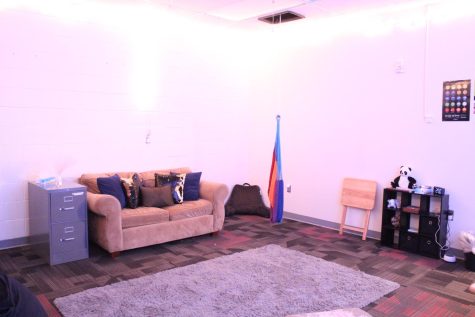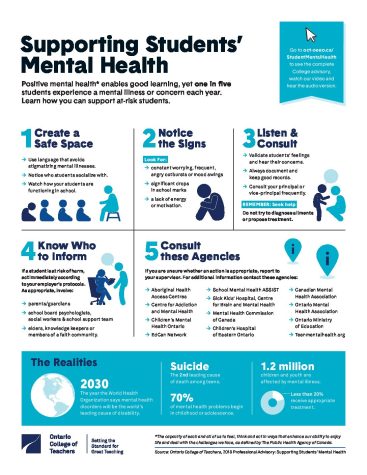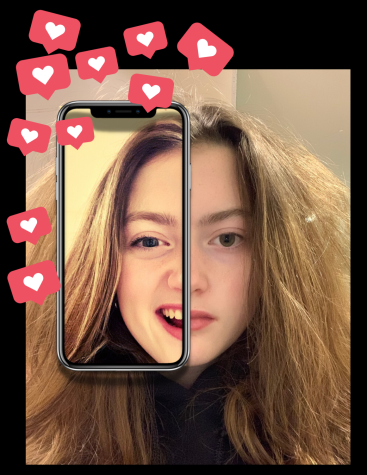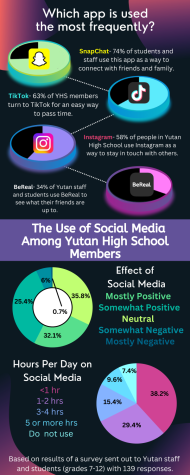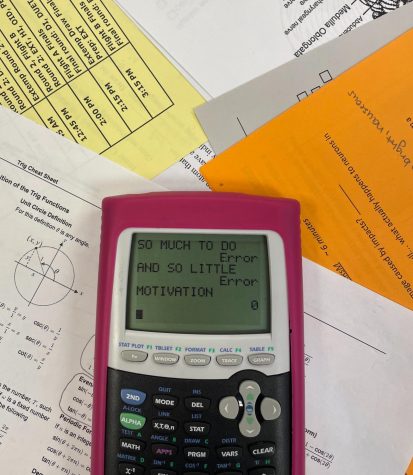Social media: Leave it
Lewis argues it’s time to rethink the approval-seeking, addiction-creating habit
As you walk around our school, you can see the different ways social media has changed our lives. When going to lunch, everyone is on their phones. Even during the passing periods, you might run into someone that is on their phone texting their friends about something. While in the commons, you might see kids making TikToks or showing someone what they did over the weekend. As we see this happening, we see how students are less engaged in talking and being involved with others. These are just some ways social media is changing how we live our lives—and not for the better.
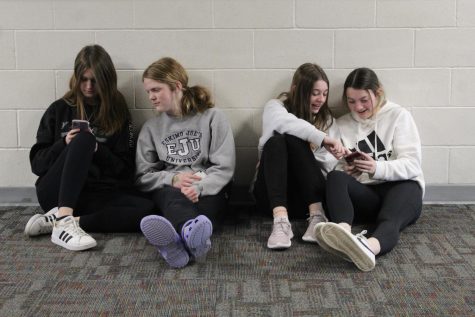
Social media is sometimes described as more addictive than drugs and alcohol. When on social media, people are craving the likes and shares they get on a post. People get mad if they don’t get enough likes on a post. Some people will even go so far as to delete the photo because they didn’t get what they wanted. Teens also crave the number of likes they want, but what are they seeking? They are seeking approval from random people that follow them and are liking their posts. A typical social media app where this occurs is Instagram. Teens are posting inappropriate things because they crave more likes and attention. Another place this can be seen is on Snapchat. You can see how kids are living their lives; some kids will post how they are out at a party and drinking, doing things that shouldn’t be posted but are. This is because they seek that attention and want more people to think that they are “cool” for their actions.
There are a lot of effects of this addiction. A study at the Mayo Clinic tested different teens on how they see social media and how they are using it. They found that they use Instagram as their identity for their personal life, and that’s not healthy for the human mind. The Mayo Clinic also showed how the brain is trained to like that type of notification when they see it. Social media is retraining the minds of its users. One of the reasons social media can be a dark place is the causes of depression and where that leads kids. When teens don’t feel like they are a part of friend groups or even society, they go back to social media thinking that it is the new standard for their lives. Girls often have more problems with this. Girls and boys who are depressed will go on social media and will see that someone has something that they want but don’t have, so this causes more and more depression. Teens have access to seeing anything on social media, and because of this girls in particular are finding more reasons to try to become prettier or even skinnier. Some teens forget that famous people will use filters that change the way that they look. This is not the way we should see social media.
I think one way we can change the way we use social media is by being cautious about what we see and what we post on social media. One way is to stop following people that make you feel less about yourself. By doing that, you are already helping your mental health. Another way of dealing with social media is by deleting or stepping away from an account that makes you feel bad about yourself. I stepped away from some social media apps for a couple of months, and I could tell the difference in how I was living life. Taking a brain break for a while from any social media can be so beneficial for your mental health. I noticed I wasn’t worried about what my friends were doing and how they lived. I was and am much happier with how I am living and seeing things. This kind of break can help teens rebuild their self-image.
Overall, social media can change your mind fast, so I urge you, to rethink the way you are using your social apps. Don’t worry about the virtual likes that you are getting and start focusing on talking to people in life that matter.
Your donation will support the student journalists of Yutan High School. Your contribution will help cover our annual website hosting costs, as well as allow us to purchase equipment and produce more in-print editions.

Jade Lewis is a junior and is in her second year of journalism. She enjoys writing stories and taking photos. Outside journalism, Jade is involved in...

Kylie Krajicek is a junior and in her third year of journalism. She enjoys action and sports photography. Outside journalism, Kylie is involved in...

